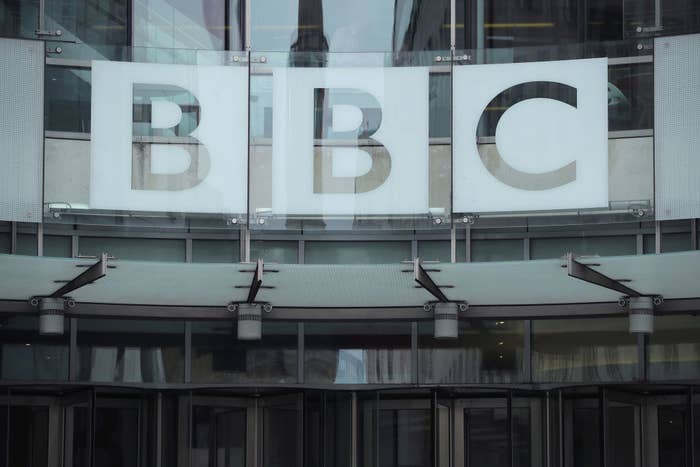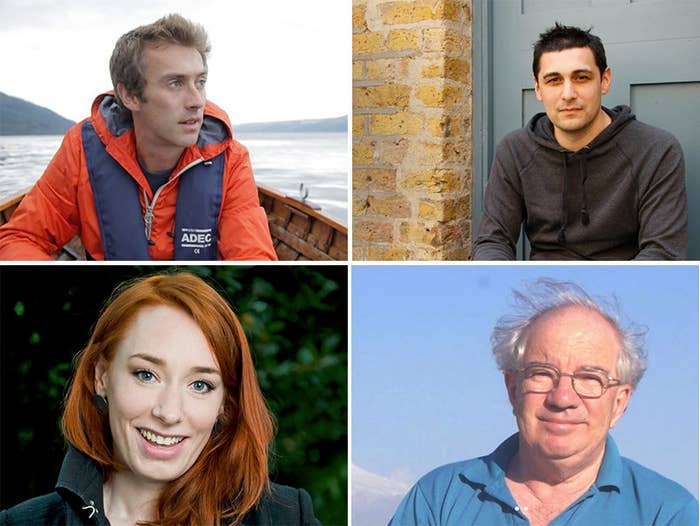
In August, BBC Radio 4 invited Lord Lawson – the former chancellor of the exchequer, now the chair of the Global Warming Policy Foundation, a think tank that rejects mainstream climate science – on to the Today programme.
Lawson claimed global temperatures had not risen in the past decade, which has been found to be false by the Met Office. This went unchallenged by the interviewer, and the broadcasting regulator, Ofcom, has now launched an investigation into Lawson's appearance.
Some of the BBC's most prominent science presenters, including Brian Cox and Jim Al-Khalili, were appalled.
Part of the purpose of the BBC, according to its charter, is to provide "impartial news and information to help people understand the world around them". But in recent years there has been a growing argument about what that word, "impartial", means.
In politics, it's often been fairly easy to provide a minimal level of impartiality by simply getting one person from Team A – say, the government – and one person from Team B – say, the opposition – to talk about the subject at issue, giving "balance". But this approach has caused controversy when it has been applied to more technical, scientific issues – especially climate change.
Cox and Al-Khalili, among others, argue that climate scientists are near-unanimous in agreeing that the world is warming, that humans are causing it, and that it is dangerous. This is borne out by the numbers: A 2016 study, aggregating the results of previous research, found that somewhere between 90% and 100% of active climate scientists agree that global warming is real and human-caused.
So having someone who disagrees with this consensus position, the argument goes, isn't providing "balance" or being "impartial" – it's giving a fringe position undue prominence and suggesting that there is a scientific controversy where none exists.
This discussion is not new. In 2011, the geneticist Steve Jones carried out a review for the BBC Trust looking at the accuracy and impartiality of the corporation's science programming. It found that the BBC sometimes gave a "false balance" between mainstream scientific consensus and "fringe views", and suggested steps to avoid it. Follow-up reports in 2012 and 2014 said that the situation had improved somewhat, although the problem still exists.
"Within mainstream climate science, there's debate and discussion," Dallas Campbell, presenter of the BBC science series Bang Goes the Theory and several documentaries, tells BuzzFeed News, "but not about the major stuff. Not about 'Is climate change a real thing?'" He thinks the BBC "has a problem" in its understanding, and presentation, of the scientific consensus.
The problem, says Hannah Fry, a maths lecturer at University College London and a presenter of several BBC science programmes, including Climate Change by Numbers, "is the idea of inviting 'all sides of the debate'. There is no debate [among climate scientists]; there's a consensus. We've already decided. People have moved on."
But to some extent, there is a debate – it's just not happening among climate scientists. Instead it's among the wider public, a large proportion of whom do believe there is a real controversy about whether the world is warming dangerously. Fry says that, for that reason, simply shutting people like Lawson out could cause more problems than it solves.
"I don’t have a problem with him being on the programme," she says. "It can be as unhelpful to shut out all voices as it is to let people on and expose the flaws in their arguments."
The trouble, Fry says, is that these voices are often not challenged in real time; non-specialist presenters, such as those on the Today programme, may not have the facts at their fingertips that would let them pick up on any false statements.
"What was mishandled was that he wasn't challenged on the completely, demonstrably false statements he made," she says. "For a subject that important and contentious, you shouldn't let people get away with saying inaccurate things."
Journalists can't be experts in everything, she says, but "on something that important, they should have some top-line facts. If you're going to give a platform to someone who doesn't believe the scientific consensus, you have to be extra careful." Campbell agrees:
"If they want to get someone like that on, they should have a proper climate scientist on who understands the data."

In the specific case of Lawson, who, Campbell says, has a history of making the kind of statements he made on Radio 4, "the BBC knew his reputation". But if he wasn't allowed to talk, "it would give the impression that science is about shutting down opinions, and it's not".
There absolutely are controversies within the science of climate change, says Adam Rutherford, a geneticist and presenter of BBC Radio 4's flagship science programme Inside Science. "We regularly cover climate science, as you'd expect," he tells BuzzFeed News. "It's one of the defining scientific issues of our time." But the controversies are things like "How quickly is the temperature rising?" or "How much can we expect the sea levels to rise?"
"Antarctic sea-level rise is one," Rutherford says. "There have been several studies suggesting a relatively large variance in predicted rises. But they all predict a rise; none of them indicate stasis, or a drop."
And, he says, if there was ever a paper published in a major, reputable journal that did suggest a break with the consensus – that predicted no warming, or no sea-level rise – "we would be absolutely compelled to cover it". Publication by a major peer-reviewed journal "isn't a marker of some fabled scientific truth, but an indicator that the research is worthy of further discussion", he says. "As far as I know, this has never happened. So we've never invited someone who rejects the broad scientific consensus that climate change is real, and anthropogenic [man-made] in origin."
Not all the controversies are scientific, says Len Fisher, a chemist who has presented several BBC Radio 4 science programmes, and worked on the much-loved Tomorrow's World. "There's a distinction to be drawn," he tells BuzzFeed News. "If you're talking about matters of fact, then you're not balancing things by bringing in dogmatic opinions; you're unbalancing them."
But in other areas, opinions do matter, he says. "The only controversy is what we should do about climate change," he says. "If they want controversy, what the BBC should do, instead of bringing in idiots and fringe lunatics, is ask: What's the social way to tackle these problems? You don't argue the science; you go to the next level, and instead talk about how we can deal with it."
These problems exist for all news outlets, especially broadcasters – but it's the BBC, with its huge reach and statutory responsibilities, that is most often the subject of controversy. "These things do flare up occasionally, and I can see the scientific community getting bothered by them," says Campbell. "But in general, it does a pretty good job."
It's helped, says Rutherford, by the fact that the BBC Science Unit is staffed by so many scientists. If he'd been in the office during the Lawson incident (he spoke to BuzzFeed News while on holiday in Sweden), "I expect we'd have had a detailed conversation about whether we would have tried to address any falsehoods," he says. "And that decision would have been made between the Science Unit editor and producers – almost all former working scientists – and myself, and in many situations I would consult a working climate scientist."
CORRECTION
Len Fisher worked on Tomorrow's World, but did not present it. An earlier version of this piece misstated that fact.
